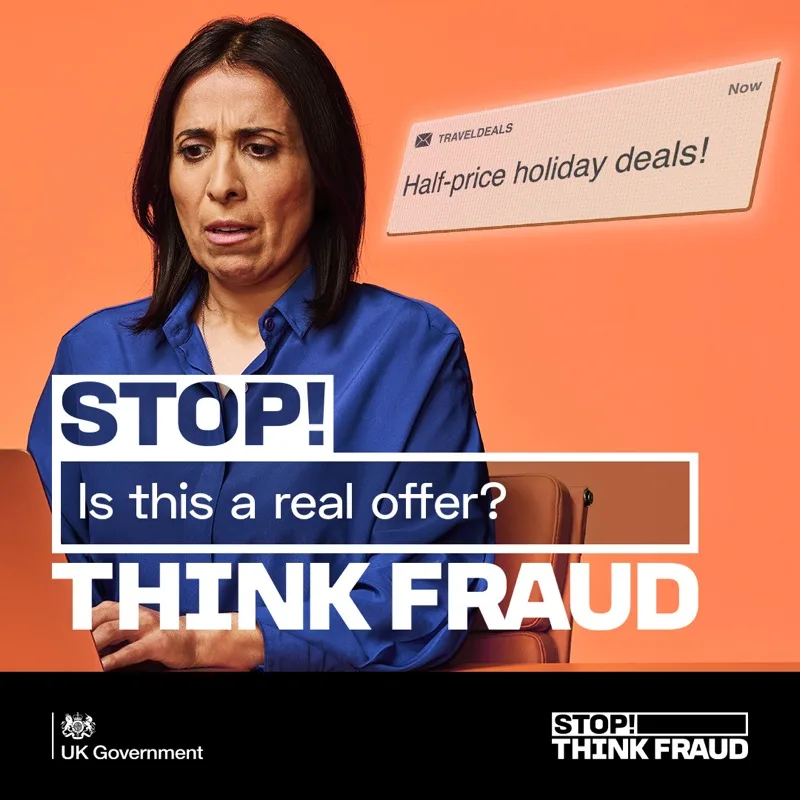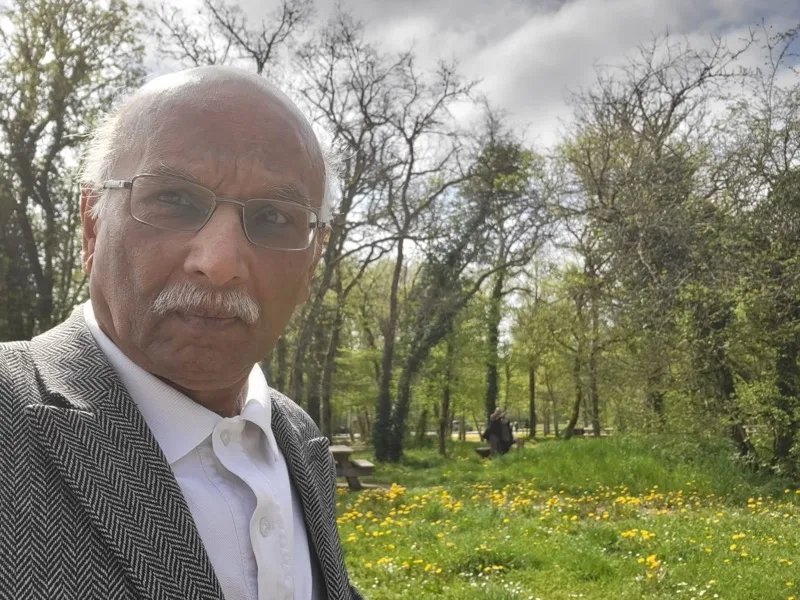
Nearly three quarters of South Asian people who have experienced fraud report having struggled with their mental health South Asian community voices get behind the initiative.
Data shows that fraud accounts for approximately 38% of all crime in England and Wales, with an estimated 1 in 17 adults being a victim of fraud in the year ending September 2023.
It is within this context that the Government launched ‘Stop! Think Fraud’ – the new national campaign against fraud which urges everyone to stop and think about whether something could be fraud before taking action.
Supported by Chief Executive of Enfield Saheli and Vice President at NGCO – National Council of Gujarati Organisations UK, Krishna Pujara, the Stop! Think Fraud campaign coincides with the release of new data which reveals the hidden cost of fraud, as victims report serious mental health struggles after being targeted by criminals.
More than 2,000 UK fraud victims were interviewed in the survey, which showed that nearly three quarters (74%) of South Asian victims had struggled with their mental health in the months that followed their experience of fraud. More than half (55%) reported increased anxiety and feelings of low self-esteem (60%). Furthermore, 50% said they experienced feelings of depression.
Experiencing fraud also impacted the sleep of most South Asian fraud victims (83%), with over a third (37%) citing a significant impact. Close to half (47%) attributed this lack of sleep to not being able to stop thinking about the incident.
As fraud continues to become more sophisticated and harder to spot, the Stop! Think Fraud campaign seeks to provide consistent and clear anti-fraud advice to the public.

The campaign’s new online fraud hub draws on the expertise of leading counter-fraud experts and provides concise, simple advice on how to spot fraud, stay safe and what to do if targeted – whether that is online, on the phone or in-person. It reassures people that falling victim should never have shame, stigma or fault attached to it, and signposts victims to organisations for further advice and support.
Ram was a victim of fraud by someone pretending to be a former colleague asking for help.
The email mentioned his former colleague was in Indonesia, that her phone had been stolen and that she needed him to transfer £2,500 which she would refund on her return to the UK.
Talking about his experience, Ram says: “The experience of being a victim of fraud left me feeling cheated, I was simply trying to help a colleague and was scammed in the process. I lost a significant amount of money which I was unable to recoup because it was transferred abroad.
Before this experience, I’d assumed that I’d never fall victim to fraud, however, I’ve come to understand that it can happen to us all, and that’s why I’m now very cautious before I act.”
Krishna Pujara, Chief Executive of Enfield Saheli, President of the UK-India Business Council of WICCI, G100 Global Chair – Anti Gender based Violence and Vice President at NGCO – National Council of Gujarati Organisations UK said: “From negative impacts on mental health to trouble sleeping, it’s clear that fraud costs us all so much more than money.

“It’s likely that we all know someone who has been impacted, but often in South Asian communities, these experiences aren’t spoken about due to the shame and stigma that can wrongly exist around being scammed.
“Whether it’s understanding the common types of fraud, or being aware of the tactics fraudsters often use, it’s essential that we’re equipped with information that will help to protect us against scams – and that’s why I welcome the Stop! Think Fraud campaign.”
Here are five tips from Stop! Think Fraud on how to protect yourself:

- Know the fraud signs: Common tactics can include impersonating an authority or ‘trusted’ voice or using language that evokes powerful emotions such as fear or hope. It’s important to know the signs so you have a greater chance of avoiding fraud.
- Protect yourself: While you can’t stop a criminal attempting to defraud you, you can make yourself a harder target. This can be about breaking contact by closing a text, email, or conversation. Or it could be changing your online passwords to help protect yourself online.
- Verify and make contact directly: Always verify requests for money or personal details, even if it seems to come from a person or organisation you know. Contact people or companies directly through official websites, numbers, or email addresses.
- Report it: If you believe you have been a victim of fraud, you should always report it. If you live in England, Wales or Northern Ireland and have been defrauded, report it to Action Fraud online or by calling 0300 123 2040. In Scotland, all reports of fraud should be reported to Police Scotland by calling 101.
- Don’t be afraid to seek help: If you have been affected by fraud, remember help is available.















